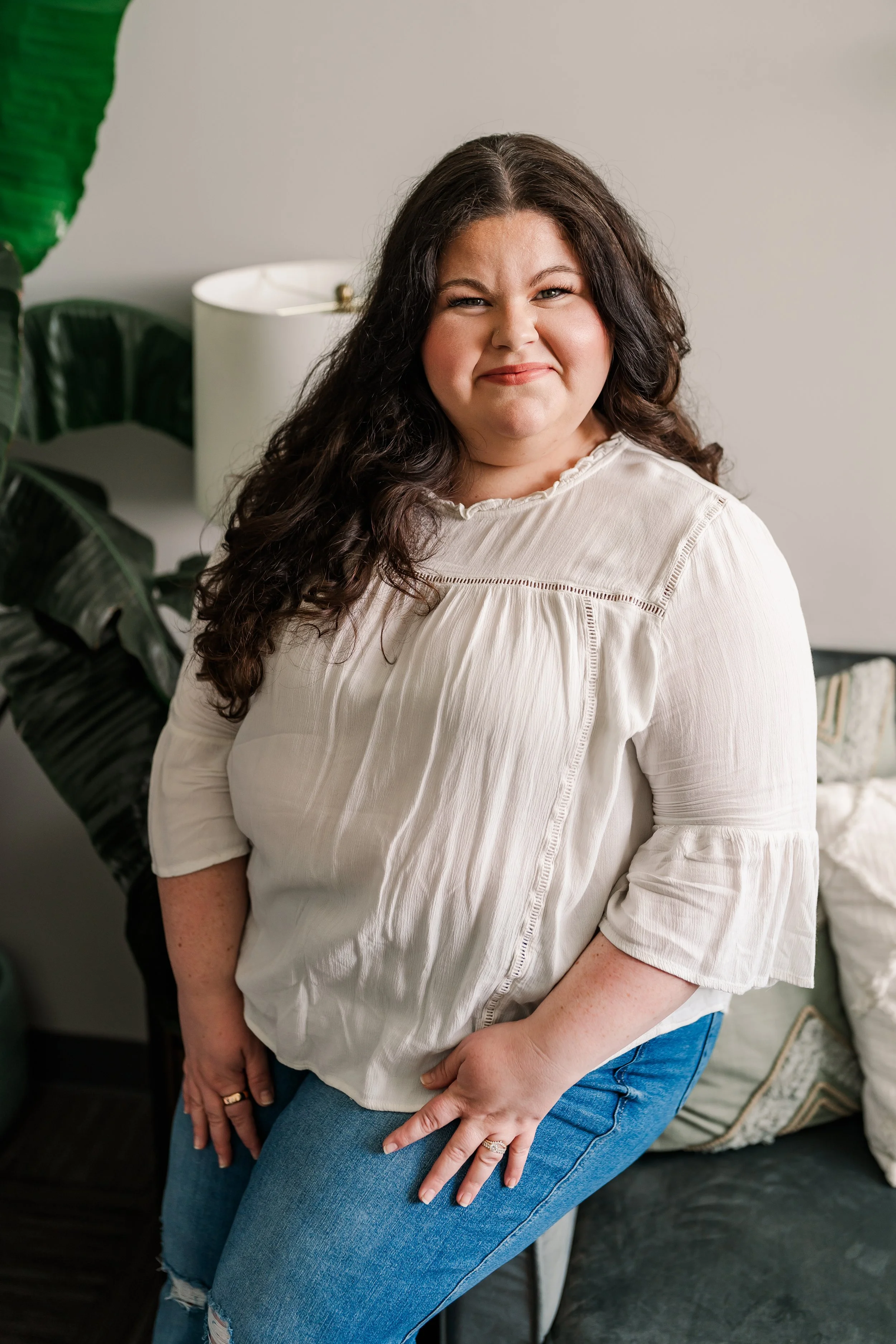The Mental Health Benefits of Practicing Gratitude
During stressful seasons or times of transition, it’s easy to lose sight of the good. When life feels heavy or overwhelming, gratitude may sound like a nice idea—but not a realistic one. Yet research shows that cultivating gratitude isn’t about ignoring struggle; it’s about creating balance for your mind and body.
Gratitude is more than saying “thank you.” It’s a therapeutic mindset—a way of paying attention to what’s working, what’s meaningful, and what deserves appreciation, even amid imperfection. For high-achieving, neurodivergent women who often live in constant motion or self-critique, gratitude can become an anchor—a tool that brings calm, clarity, and a renewed sense of connection.
Why Gratitude Improves Mental Health
The connection between gratitude and mental health is well-documented. Practicing gratitude actually changes the brain. When you focus on appreciation, your brain activates neural pathways associated with joy, safety, and reward. Over time, this strengthens emotional regulation and decreases the intensity of anxious or negative thought patterns.
Gratitude also reduces stress hormones like cortisol while increasing serotonin and dopamine—the neurotransmitters responsible for mood stability and happiness. In short, gratitude doesn’t just make you feel better—it helps your body function in a calmer, more balanced way.
For those who live with anxiety, perfectionism, or emotional overwhelm, gratitude offers a grounding counterbalance. It reminds your nervous system that safety and goodness still exist, even when things aren’t perfect.
Simple Ways to Practice Gratitude Every Day
You don’t have to write a long gratitude list or force positivity to experience the benefits of gratitude. What matters most is consistency and authenticity.
Here are a few ways to bring gratitude into your daily rhythm:
Start Small: Each morning or evening, name one thing that feels good right now—a warm drink, a supportive friend, a quiet moment.
Keep a Gratitude Journal: Write down three things you’re thankful for each day. Over time, this trains your brain to scan for what’s going well.
Savor Simple Moments: Pause throughout the day to notice what feels comforting or beautiful. Gratitude lives in the small things.
Express It: Tell someone you appreciate them. Gratitude shared amplifies connection and reinforces positive emotion.
Anchor It to Routine: Pair gratitude with existing habits—while brushing your teeth, during your commute, or at bedtime.
Make It Sensory: For neurodivergent minds, pairing gratitude with sensory experiences—like touch, scent, or movement—can help it stick more deeply.
There’s no single right way to practice gratitude. It can look different for everyone. The key is to make it feel natural, not forced.
How Therapy Can Support a Gratitude Practice
Sometimes, gratitude doesn’t come easily—and that’s okay. Many people find that unresolved trauma, burnout, or chronic self-criticism can make appreciation feel out of reach. This is where emotional wellness therapy can make a difference.
In therapy, you can explore what blocks your ability to feel gratitude—such as perfectionism, people-pleasing, or the belief that you must “earn” rest or joy. Therapy provides space to:
Identify and heal the roots of self-judgment and emotional exhaustion.
Learn mindfulness-based techniques to regulate your nervous system.
Reframe negative thought patterns that crowd out appreciation.
Practice compassionate awareness rather than forced positivity.
Through therapy for anxiety and emotional wellness work, you begin to rebuild connection—to your body, your emotions, and your sense of gratitude for yourself, not just for others.
When Gratitude Feels Hard
It’s important to remember that gratitude isn’t about denying pain or pretending everything is fine. Some days, it’s enough to simply notice one thing that brings a moment of relief. Gratitude is a practice, not perfection—it’s something you return to again and again, even when it feels hard.
Over time, this practice reshapes your perspective. You may find that you react to stress differently, that self-compassion comes more naturally, and that moments of joy begin to stand out again.
Gratitude doesn’t erase what’s difficult—it helps you carry it with more grace and less fear.
Schedule a Consultation to Begin Your Gratitude Practice
If you’ve been feeling disconnected, anxious, or weighed down by perfectionism, gratitude can be a gentle way back to yourself—and therapy can help you get there.
Schedule a consultation today to explore how therapy can support your journey toward greater balance, emotional wellness, and appreciation for the life you’re building.
Jacqueline Campbell, MS, LMFT
Jacqueline Campbell is a Licensed Marriage & Family Therapist with a decade of experience supporting clients in the Chattanooga, TN area. She specializes in childhood trauma, relationship trauma, religious trauma, neurodivergence, and anxiety and uses evidence-based approaches like Accelerated Resolution Therapy, Brainspotting, and Neurofeedback to help clients heal the lingering trauma, resolve anxiety, recover from burnout, and find balance, fulfillment, and authenticity in their life and relationships. At Wild Oaks Counseling, she is committed to providing compassionate, expert care both in-person and online for clients across Tennessee, Colorado, and Florida.



